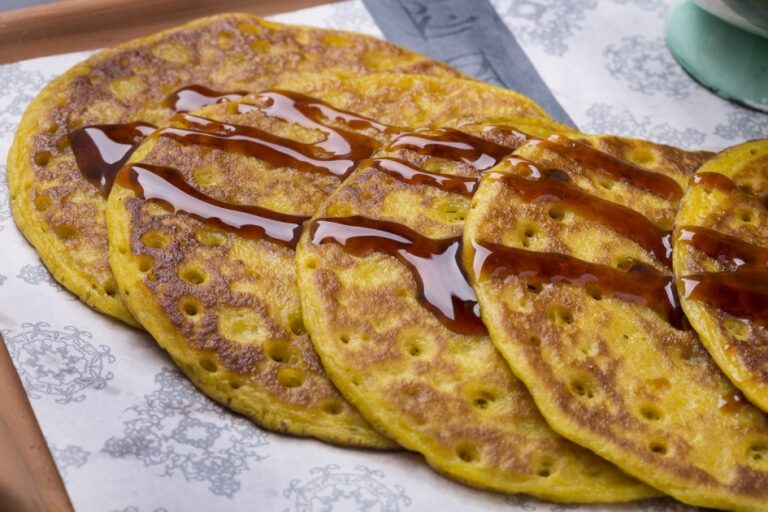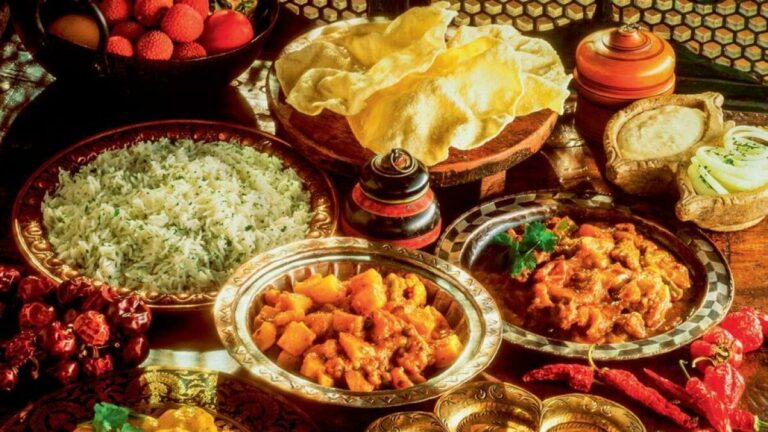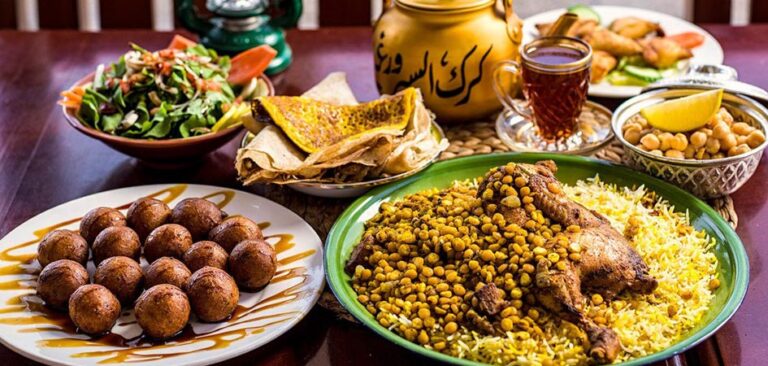Introduction: Emirati cuisine during national holidays/events
Emirati cuisine is a reflection of the country’s rich cultural heritage and diverse influences. During UAE national holidays and events, Emirati dishes take center stage, showcasing the finest flavors and culinary traditions of the region. From savory stews to sweet dumplings and porridges, Emirati cuisine is a celebration of local ingredients and authentic cooking methods.
Al Machboos: UAE’s national dish
Al Machboos is the UAE’s national dish and is commonly served during national holidays and events. This flavorful dish is made with rice, meat (usually chicken or mutton), and a range of fragrant spices such as saffron, cumin, and cardamom. The meat is often cooked in a tomato-based sauce and then added to the rice, which has been cooked in a similar spice blend. Garnished with fried onions and raisins, Al Machboos is a hearty and satisfying dish that represents the best of Emirati cuisine.
Luqaimat: sweet dumplings for celebrations
Luqaimat is a popular sweet treat that is synonymous with celebrations in the UAE. Made from flour, yeast, and sugar, these small dumplings are deep-fried until golden brown and then drizzled with date syrup or honey. The texture is crispy on the outside and soft on the inside, making them a popular snack during Eid and other national events.
Harees: traditional Ramadan porridge
Harees is a traditional porridge that is often served during Ramadan, a month-long religious observance in the UAE. Made from cracked wheat and meat (usually chicken or lamb), Harees is slow-cooked for several hours until it becomes a smooth and creamy porridge. It is typically seasoned with salt and pepper and garnished with fried onions or ghee.
Balaleet: vermicelli dessert for Eid
Balaleet is a sweet and fragrant dessert that is often served during Eid, a Muslim festival that marks the end of Ramadan. This dessert is made by cooking vermicelli noodles in a blend of milk, sugar, and rose water until the noodles are soft and creamy. The dish is often garnished with saffron, fried onions, and nuts, making it a festive and indulgent treat.
Thareed: popular dish for iftar during Ramadan
Thareed is a popular dish that is often served during iftar, the meal that breaks the fast during Ramadan. This hearty stew consists of layers of flatbread that have been soaked in a meat and vegetable broth. The bread is then topped with a range of ingredients such as meat, chickpeas, and tomatoes. Thareed is a comforting and satisfying dish that is perfect for breaking the fast after a long day of fasting.
In conclusion, Emirati cuisine is a delicious and diverse representation of the country’s culture and traditions. Whether it’s the national dish of Al Machboos or the sweet dumplings of Luqaimat, Emirati dishes are a must-try during national holidays and events. The range of flavors and textures will leave you wanting more and provide a unique insight into the rich culinary heritage of the UAE.



